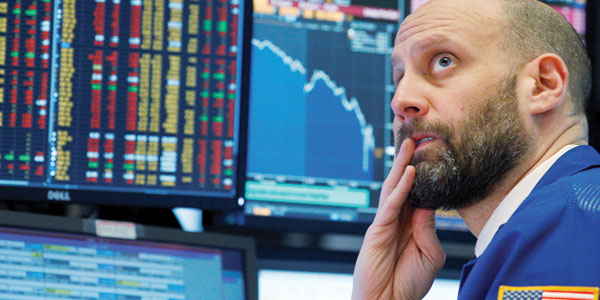
Commentary by Eulogio JP
Politics isn’t all that has been unstable since Donald J. Trump assumed the U.S. presidency.
The stock market has been anything but stable. Since Trump was elected, stocks have risen steadily for the most part, especially during the first few weeks of 2018. A strong economy and historically low unemployment were the main reasons for the growth.
However, the stock market dropped significantly during the first week of February. In one day, the Dow experienced its biggest drop since August 2011.
The drop was so intense in the United States during such a short period that it negatively impacted markets worldwide. As the stock market dropped, people sold their stocks. And as more people sold their stocks, the market dropped even lower. The result: the beginning of an economic cycle called “Global Sell Off.”
Why are people selling their stocks? The short answer is because they expect the stock market to drop even more. Why do they expect it to drop? Because the Federal Reserve is expected to increase interest rates, that’s why.
During the growth of America’s economy, inflation has remained surprisingly low. However, this is likely to change in the near future. Because of low unemployment rates, companies are having to increase their wages to retain existing employees and attract new ones. As wages increase, so do the prices for the products the companies make or the services they offer. In other words, inflation takes place.
To combat inflation, the Federal Reserve raises interest rates. And here is when the problems begin.
The cost of borrowing money increases as a result of higher interest rates. That means the loans that companies rely on to run their businesses become more expensive and cut into their profits.
When companies are healthy and their profits are high, investors are willing to pay more for their stock prices. But with corporate profits in decline, investors will decrease the amount they’re willing to pay for the same stock.
Will the unstable stock market continue to drop, then? It looks that way.
___________________________________________________________________________________
¿Por qué el mercado de valores es tan inestable?
La política no es todo lo que ha sido inestable desde que Donald J. Trump asumió la presidencia de Estados Unidos.
El mercado de valores ha sido cualquier cosa menos estable. Desde que Trump fue elegido, las acciones han aumentado de manera constante en su mayor parte, especialmente durante las primeras semanas de 2018. Una economía fuerte y un desempleo históricamente bajo fueron las principales razones del crecimiento.
Sin embargo, el mercado bursátil se redujo significativamente durante la primera semana de febrero. En un día, el Dow experimentó su mayor caída desde agosto de 2011.
La caída fue tan intensa en los Estados Unidos durante un período tan breve que tuvo un impacto negativo en los mercados de todo el mundo. A medida que el mercado bursátil cayó, la gente vendió sus acciones. Y a medida que más personas vendieron sus acciones, el mercado bajó aún más. El resultado: el comienzo de un ciclo económico llamado «venta global».
¿Por qué la gente vende sus acciones? La respuesta corta es porque esperan que la bolsa baje aún más. ¿Por qué esperan que caiga? Debido a que se espera que la Reserva Federal aumente las tasas de interés, esa es la razón.
Durante el crecimiento de la economía de los Estados Unidos, la inflación ha permanecido sorprendentemente baja. Sin embargo, es probable que esto cambie en el futuro cercano. Debido a las bajas tasas de desempleo, las empresas tienen que aumentar sus salarios para retener a los empleados existentes y atraer a otros nuevos. A medida que los salarios aumentan, también lo hacen los precios de los productos que fabrican las empresas o los servicios que ofrecen. En otras palabras, la inflación toma lugar.
Para combatir la inflación, la Reserva Federal aumenta las tasas de interés. Y aquí es cuando comienzan los problemas.
El costo de pedir dinero prestado aumenta como resultado de tasas de interés más altas. Eso significa que los préstamos de los que dependen las empresas para administrar sus negocios se vuelven más caros y reducen sus ganancias.
Cuando las empresas están sanas y sus ganancias son altas, los inversores están dispuestos a pagar más por sus acciones. Pero con las ganancias corporativas en declive, los inversores disminuirán la cantidad que están dispuestos a pagar por la misma acción.
¿Seguirá cayendo el mercado de valores inestable, entonces? Se ve de esa manera.










